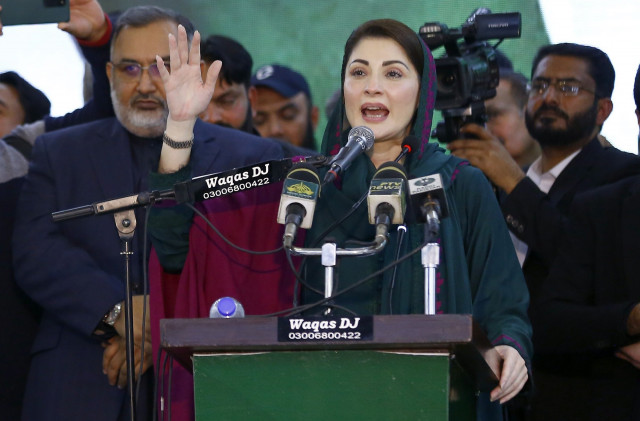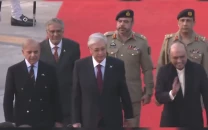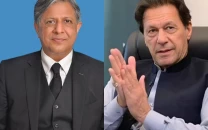CJP ‘guilty, deserves punishment’: Maryam
PML-N SVP’s response comes a day after SC stayed proceedings of audio leaks panel

Pakistan Muslim League-Nawaz (PML-N) Senior Vice President Maryam Nawaz Sharif in response to the top court’s stay order on the proceedings of the audio leaks inquiry commission on Saturday said Chief Justice of Pakistan (CJP) Umar Ata Bandial "is guilty and deserves punishment".
In a statement released on social networking site Twitter, the PML-N chief organiser claimed that preventing the commission from functioning “is a proof and admission of his guilt”.
Maryam stated that the person occupying the highest chair of justice was shamelessly using his position to evade accountability. "If you and your mother-in-law are innocent, shouldn't you face the law? Or is it that the chief justice’s post exempts you from accountability?" she questioned.
She said that CJP Bandial was “deserving of punishment for making a mockery of the law and turning the judiciary into a spectacle to save his family”.
On Friday, a five-member Supreme Court bench, led by the CJP and comprising Justice Ijazul Ahsan, Justice Munib Akhtar, Justice Syed Hasan Azhar Rizvi and Justice Shahid Waheed, issued the order while hearing four petitions filed by PTI Chairman Imran Khan, Supreme Court Bar Association (SCBA) President Abid Zuberi as well as others against the inquiry commission formed by the federal government last week.
The bench had held that consultation of the CJP was required for the nomination of high court judges in the inquiry.
During the hearing, Attorney General for Pakistan Mansoor Usman Awan sought permission to make a preliminary submission, saying that CJP Bandial ought to consider recusing himself from the bench on account of a certain conflict of interest.
The order, however, maintained that it was an accepted and settled constitutional principle, acted upon several times in the constitution of commissions, that whenever a sitting judge was intended to be made a member of the body, the permission of the chief justice of Pakistan had to be sought first.
“Since this power was peculiar to the said office, the incumbent for the time being of the same could neither divest himself nor be divested by the federal government from discharging the constitutional duty,” the order stated.
The order further noted that as the federal government appeared to have acted unilaterally in this matter, a “constitutional principle” of the highest importance had been, prima facie, "breached".



















COMMENTS
Comments are moderated and generally will be posted if they are on-topic and not abusive.
For more information, please see our Comments FAQ